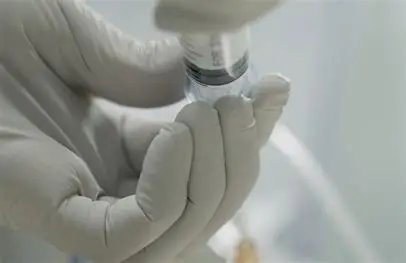SCG Cell Therapy Secures China NMPA IND Approval for First Cell Therapy Targeting Chronic Hepatitis B
08 July 2025 | Tuesday | News

Image Source : Public Domain
SCG Cell Therapy Pte Ltd (SCG), a clinical-stage biotechnology company pioneering TCR T cell therapy for infectious diseases and associated cancers, announced today that the China National Medical Products Administration (NMPA) has cleared the Investigational New Drug (IND) application for SCG101V, marking the first-ever investigational cell therapy to enter regulatory approved Phase 1/2 clinical trial for chronic hepatitis B virus (HBV) infection.
SCG101 is designed to cure chronic hepatitis B by eliminating HBV cccDNA and HBV-DNA integration within HBV-infected hepatocytes, which are the fundamental source of persistent infection and antigen production. These infected hepatocytes serve as the long-term viral reservoir that current antiviral therapies fail to eradicate. "SCG101 is designed to mimic the natural immune response observed in individuals who are able to clear HBV infection spontaneously. HBV-specific T cells play a central role in this process and, remarkably, through genetic engineering of T cells, we were able to replicate this natural process as demonstrated in our preclinical models and clinical data in hepatocellular carcinoma, providing strong evidence that this promise holds true in hepatitis B patients", said Professor Ulrike Protzer, Scientific Founder of SCG Cell Therapy and Director of Institute of Virology Technical University of Munich / Helmholtz Munich.
In Phase 1 clinical trial of SCG101 in patients with HBV-related hepatocellular carcinoma (HCC), SCG101 demonstrated a good safety profile and sustained clearance of serum hepatitis B surface antigen (HBsAg), even in heavily pre-treated patients. Among the treated patients, 94% of patients had previously received nucleoside analogue (NA) antiviral therapy, and 72% presented with baseline liver cirrhosis. Following a single infusion of SCG101, all patients experienced a rapid decline in HBsAg level. Notably, 94% achieved a 1.0–4.6 log₁₀ reduction in HBsAg within 28 days, with HBsAg levels remained <100 IU/mL for up to one year without rebound. Furthermore, 23% of patients achieved complete HBsAg loss, a critical benchmark for a cure.
Professor Niu Jinqi, Vice President and Chief Physician of The First Hospital of Jilin University, commented: "SCG101 has demonstrated significant breakthrough potential in HBV-related liver cancer, remarkably, achieving HBsAg loss following a single dose. This IND approval by the NMPA marks a pioneering step toward a functional cure for chronic hepatitis B. We are excited about the prospects of this therapy and the benefit it could bring to millions of patients, helping to reduce the burden of liver disease in China and globally".
Chronic HBV infection affects an estimated 300 million people globally and is a leading cause of liver cirrhosis and hepatocellular carcinoma, contributing to more than 820,000 deaths each year. While current standard-of-care therapies can suppress viral replication, they rarely achieve a functional cure and therefore cannot fundamentally halt disease progression.
"This IND clearance represents a historic milestone—not only for SCG but for the broader field of hepatitis B treatment. With indications across HBV-related hepatocellular carcinoma, HBV-related cholangiocarcinoma, and chronic hepatitis B, this IND clearance further validates our development strategy—expanding from virus-induced cancers to chronic infectious diseases", said Christy Ma, Chief Executive Officer of SCG Cell Therapy. "SCG101 is the first cell therapy product to receive regulatory approval to enter a Phase 1/2 clinical trial specifically for HBV and HBV-induced cancer, and we are proud to lead the way in advancing toward a long-term functional cure. We remain on track for initiation of a pivotal study, following the recent completion of our Phase 1 study in patients with HBV-HCC. We look forward to sharing additional clinical data as we continue to push the boundaries of what's possible in cell therapy."
Most Read
- How Does GLP-1 Work?
- Innovations In Magnetic Resonance Imaging Introduced By United Imaging
- Management of Relapsed/Refractory Multiple Myeloma
- 2025 Drug Approvals, Decoded: What Every Biopharma Leader Needs to Know
- BioPharma Manufacturing Resilience: Lessons From Capacity Expansion and Supply Chain Resets from 2025
- APAC Biopharma Review 2025: Innovation, Investment, and Influence on the Global Stage
- Top 25 Biotech Innovations Redefining Health And Planet In 2025
- The New AI Gold Rush: Western Pharma’s Billion-Dollar Bet on Chinese Biotech
- Single-Use Systems Are Rewiring Biopharma Manufacturing
- The State of Biotech and Life Science Jobs in Asia Pacific – 2025
- Asia-Pacific Leads the Charge: Latest Global BioSupplier Technologies of 2025
- Invisible Threats, Visible Risks: How the Nitrosamine Crisis Reshaped Asia’s Pharmaceutical Quality Landscape
Bio Jobs
- Sanofi Turns The Page As Belén Garijo Steps In And Paul Hudson Steps Out
- Global Survey Reveals Nearly 40% of Employees Facing Fertility Challenges Consider Leaving Their Jobs
- BioMed X and AbbVie Begin Global Search for Bold Neuroscience Talent To Decode the Biology of Anhedonia
- Thermo Fisher Expands Bengaluru R&D Centre to Advance Antibody Innovation and Strengthen India’s Life Sciences Ecosystem
- Accord Plasma (Intas Group) Acquires Prothya Biosolutions to Expand Global Plasma Capabilities
- ACG Announces $200 Million Investment to Establish First U.S. Capsule Manufacturing Facility in Atlanta
- AstraZeneca Invests $4.5 Billion to Build Advanced Manufacturing Facility in Virginia, Expanding U.S. Medicine Production
News











